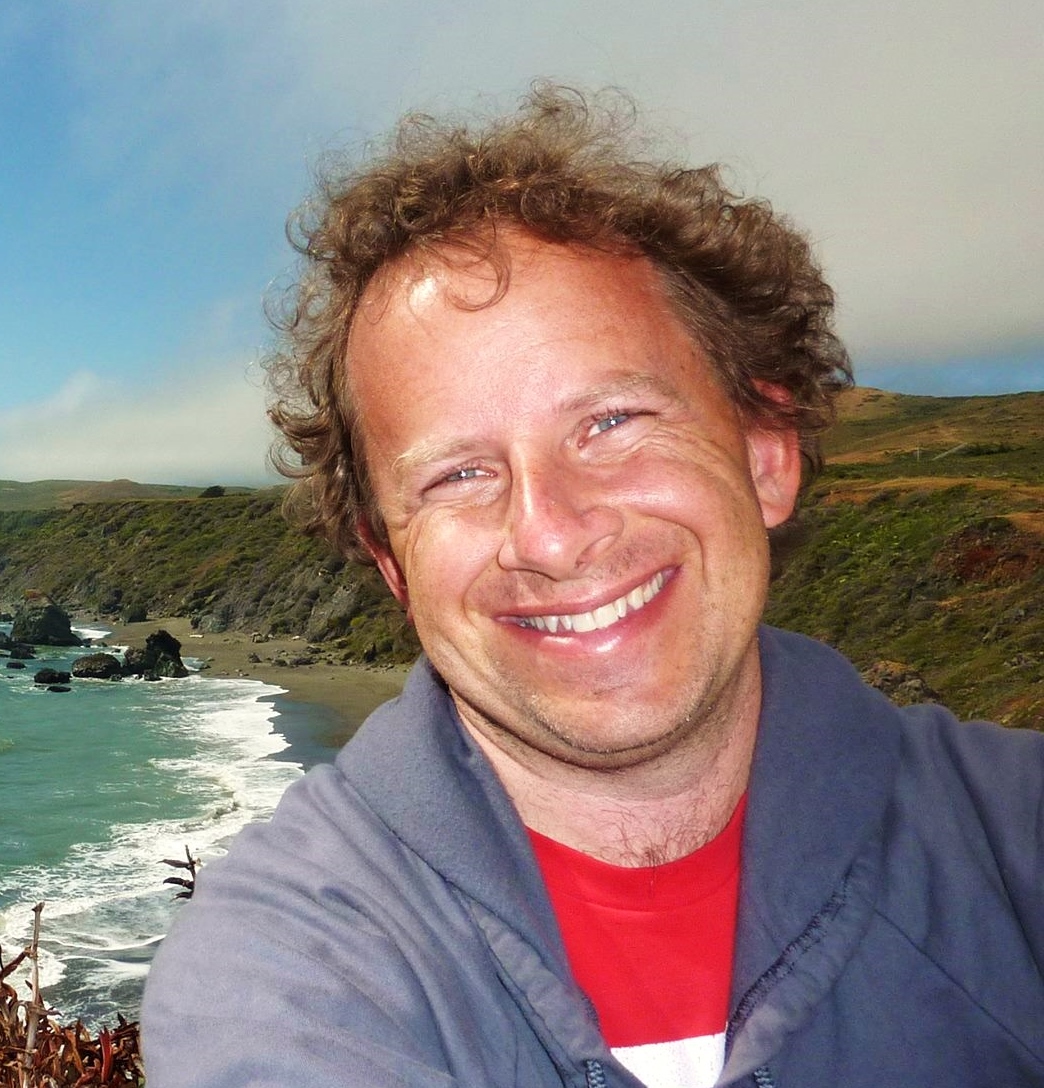Practical deep Learning for Coders (a UQ collaboration with fast.ai): Week 3 "Stochastic Gradient Descent from Scratch"
Today we continue our dive deep into the foundations of how a neural net really works, by training one from scratch.
We look at the sigmoid function, and see why it's needed for classification models. We refactor our data input code to create batches, in the process learning about the DataLoader class. We also learn about a number of useful features of arrays and tensors in python, including view and the @ operator.
Then we look more closely at how gradients are calculated and used in a PyTorch training loop. We go from a simple single-layer network, to create our first "deep" network from scratch, by adding non-linearities (with ReLU) to our network! We discuss why we need deep networks to get good results in practice.
Finally, we start looking at the softmax activation function, which is used in most non-binary classification models.
About Practical Deep Learning for Coders (a UQ collaboration with fast.ai): Part 1
Deep learning is a computing technique to extract and transform data - with use cases ranging from human speech recognition to animal imagery classification - by using multiple layers of neural networks. This course aims to equip attendees with the practical skills to develop their own Deep Learning models and apply them to real life data sets.
Course Presenter Honorary Professor Jeremy Howard
Honorary Professor Jeremy Howard
Jeremy Howard has been using and teaching machine learning for around 30 years. He started using neural networks 25 years ago. During this time, he has led many companies and projects that have machine learning at their core, including founding the first company to focus on deep learning and medicine, Enlitic, and taking on the role of President and Chief Scientist of the world's largest machine learning community, Kaggle. He is the co-founder - along with Dr. Rachel Thomas - of fast.ai, the organisation behind the deep learning framework on which this course is based.
Course Coordinator Associate Professor John Williams
Associate Professor John Williams
John Williams is an Associate Professor at the School of Information Technology and Electrical Engineering and Deputy Director of the UQ Cyber Security initiative. His research interests include reconfigurable computing and real-time embedded Systems, as well as 3D computer vision and imaging.
Delivery mode:
This 7-week short course will be offered primarily as an on-campus (physical) event. A live stream will also be made available for remote participants in the AEST (UTC/GMT +10) timezone. The cost to enrol will be the same regardless of attendance and participation mode. All course enrolments will include access to a 3-day on-campus hackathon and design competition event (in-person option only).
Course dates (also listed at the bottom of this page):
Tuesday evenings | 6:00 - 8:00pm AEST (UTC/GMT+10)
Week 1: 26th April
Week 2: 3rd May
Week 3: 10th May
Week 4:17th May
Week 5: 24th May
Break
Week 6: 21st June
Week 7: 28th June, concluding with a Hackathon event hosted by UQ Ventures (28th - 30th June)
Cost to enrol:
Professional / external attendee - $525
A 10% discount will be available for group enrolments of 10pax. or more
UQ Staff or Student / concession (proof of ID required) - $175
Students enrolled outside of UQ will also be entitled to this pricing. NB. For UQ Staff, please enrol using your uq.edu.au email address as proof.
Enrolment(s) and payment will be available between 10am, Friday 1 April to 3pm, Friday 22 April 2022.
Learning Outcomes:
After completing this course, participants will be able to:
- Train models to achieve state-of-the-art results in computer vision, natural language processing, tabular data and prediction, and recommender systems
- Turn your models into web applications and deploy them
- Understand why and how deep learning models work, and use that knowledge to improve their accuracy, speed and reliability
- Select the most appropriate deep learning techniques for given problems
- Implement neural network training methods from scratch
- Reflect on the ethical implications of your work - to ensure you’re making the world a better place with your skills
Participant Profile:
This course is suitable for people who wish to develop practical skills in deep learning, including the ability to select and train appropriate deep learning systems for real life data sets. The only technical prerequisite is to know how to code (a year of experience is enough) – preferably in Python, and that you have at least completed a high-school Mathematics curriculum.
Assessment:
None. There is an informal design competition hackathon held in the final week of the course. Informal quizzes during classes. A certificate of completion will be issued at the end of the 7-week course.
Code of Conduct:
All course attendees, presenters, staff and volunteers are required to agree with the following Code of Conduct. Organisers (UQ) will enforce this code throughout the event. We are expecting cooperation from all participants to help ensure a safe environment for everybody: Be excellent to each other, show empathy, and help make this a safe space to explore tangible, equitable solutions.
UQ is dedicated to providing a harassment-free experience for everyone, regardless of gender, age, sexual orientation, disability, physical appearance, body size, race, ethnicity, experience, or religion (or lack thereof). We do not tolerate harassment of course participants in any form. Sexual language and imagery is not appropriate for any course venue(s), including anything communicated during the content of the virtual broadcasting of the course, on social media or any other online outlets. Course participants violating these rules may be sanctioned or expelled without a refund at the discretion of the organisers, and appropriate legal action will be taken against violators where applicable.
FAQs
1. Will a recording of the course sessions be made available after?
Yes, but not immediately. There will be an anticipated delay of 2 - 3 months post course completion.
NB. Recordings are available immediately after each lecture for all registered and paid students.
2. Will the live stream of the course (i.e. weekly sessions) only run in the Australian AEST timezone?
Yes, the weekly sessions will run between 6:00 - 8:00PM AEST (UTC/GMT +10). Access to the live stream will be provided to all registered and paid students / course attendees closer to the course start date. Please check your inbox using the same email address which you had registered with.
3. Are the fees in AUD?
Yes
4. Are folks abroad able to enrol in this course?
Yes, but please note the above caveats. See 'Delivery mode' and 'Cost to enrol'.
5. Will course materials be shared after the conclusion of the course?
No slideware or course notes will be distributed. However, participants are able to independently access a free interactive version of the presenter's text book of the same name. As stated above (see: 1. of the FAQs section), a recording of the live stream will also be recorded and can be accessed at a later date.
Key health messages (for those intending on attending in-person):
- Based on a risk assessment undertaken for the wellbeing of audience members and presenters, masks will be required to be worn by all in-person attendees, regardless of current Queensland Health guidance. [Jeremy Howard, who is running this course, has asked that everybody do their best to wear a high quality mask (such as P2, KF94, or N95), because he has a medically vulnerable family member. If you only have a blue surgical mask, you can improve its efficacy 10x by following this 1 minute "knot and tuck" guide: https://youtu.be/GzTAZDsNBe0. Note that masks are required to be worn throughout all lessons for everyone attending the course.]
- From 14 February 2022, anyone attending UQ campuses, sites or facilities must be fully vaccinated – with an approved TGA vaccine – against COVID-19. [UPDATE: From Tuesday 3 May 2022, you will no longer need to be fully vaccinated to attend UQ locations.]
- Please stay at home if you are unwell.
- If you become unwell during the event, please notify an event staff member who will escort you to the first aid officer for assessment.
- Maintaining physical distancing requirements is the responsibility of each attendee, please ensure you stay 1.5m away from other attendees during the event unless in allocated seating.
- There will be enhanced public health measures in place at the event to monitor the health and safety of all attendees.
- Please do not attend the event in-person if
> you are waiting for a COVID-19 test result
> you have been in close contact with a person who is positive for COVID-19
> you are positive for COVID-19
> you have had a fever, cough, sore throat, headache, distorted sense of taste, shortness of breath, chills, vomiting, or any cold/flu-like symptoms in the last 72 hours
